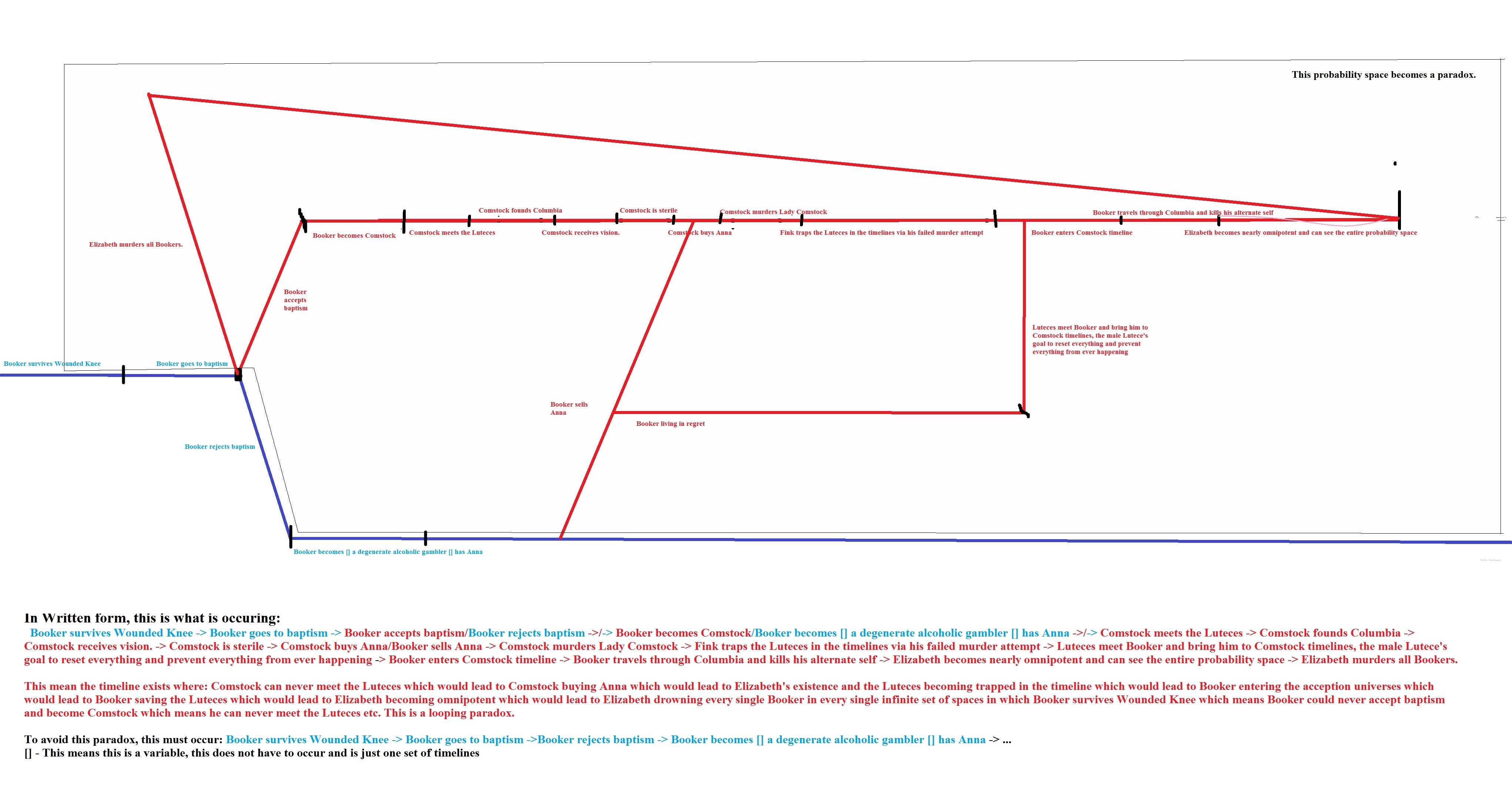Kind of echoing what was said earlier, but I think the narrative element that bothers me the most is Booker's continuous refusal to accept the 'reality' of his situation as his tour through Columbia, seeing the tears/Luteces repeatedly throughout his progression of Columbia, and still believes that he's doing this all for some random debt collector.
I mean, he went so far as to carve the memory of his daughter into his hand, and then makes no mention of it all game. The only time it's brought up is the whole 'false prophet' imagery, IIRC. Same thing with Liz's finger when Comstock mentions it. Booker swears that he doesn't know, yet still sounds quite defensive about it, and then Liz states that he knows, he just can't remember. (He's also never heard of Columbia, but passes that by saying "I've been out of touch for a while". Possibly indicating his debts, sure, but to pass a floating futuristic city that made no real effort to be 'hidden' like Rapture was as something he didn't know about?)
I know that it's explained as his guilt/cognitive dissonance, along with the mental instability that warping into another world that already has a Booker (Comstock) that leads him to produce false memories, but such a staunch refusal to remember that male Lutece was the one who bought and later offered him a way to get Anna back, or that Comstock was the one who took his child, seems rather suspect from an actual narrative perspective, given that Booker is given a higher sense of purpose/identity as a human being compared to Jack from Bioshock.
I mean, it's explained in-game, sure, but since Booker is supposed to be a more fleshed out, non-blank slate character, and we're given way more information about his life and motivations through dialogue with Liz and Slate, it seems that much more out of place to have him take such mental gymnastics to not remember anything to the point of thinking his daughter was already dead.
Combine that with the speed/sudden pick up of narrative information at the end, and it leaves you as the player deciphering things more slowly than the new elements that are brought in, because you're still trying to understand Booker's 'true' set of memories.
Infinite took Bioshock's 'twist' brought on by the character's lack of knowledge of Fontaine's actions, and amped it up to the level of actually 'lying' to the player in terms of being given information straight from the avatar that represents our influence in the game's world.
Booker is the ultimate unreliable narrator, since he is one who we view/frame the story from. When combining that with the other 'new' information/injection of story elements such as the metaphysics at the end that aren't really given any sort of grounding or governing principles, or the 'sudden' confirmation of the father/daughter revelation that really isn't touched upon at all by Booker before the sudden whirlwind ending, it could definitely make for a 'what actually happened' dissonance by some viewers
I understand and can appreciate what Levine did, but I don't think the elements mesh together as well as he wanted them to.
Still an amazing narrative design decision for a game, though.

